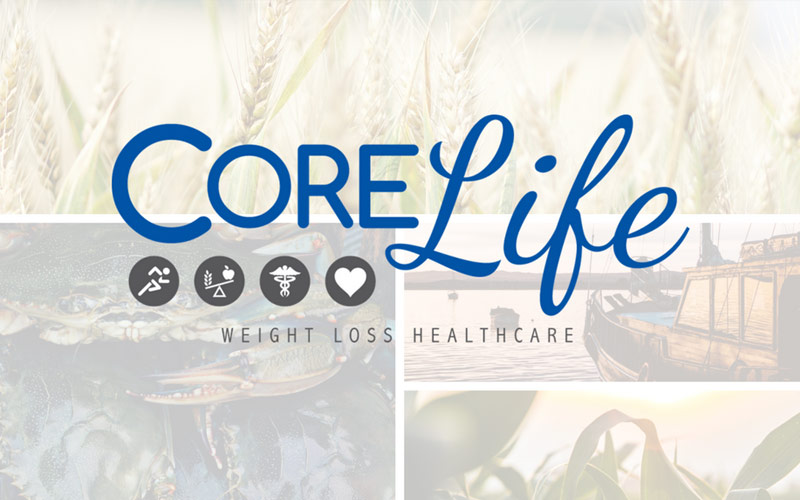If you’ve done any research about weight loss “secrets”, protein intake has almost certainly been mentioned on more than one occasion. So, is there any truth to it? Does protein make the difference between weight loss success and failure? First, let’s delve into what protein is and how it affects the body to better understand it’s potential weight loss role.
Protein is composed of different combinations of amino acids. When eaten, the body breaks protein back down into its amino acid building blocks to be re-used in the body to replace damaged/tired muscles, build hormones, synthesize immune compounds, create neurotransmitters, and a myriad of other things. While grains, fruits, and veggies do contribute a small amount of protein, your best sources are eggs, dairy, meat, poultry, fish, nuts, and seeds. Unlike carbohydrates that are primarily digested in the small intestine, protein is digested in the stomach by strong stomach acids, then absorbed into the body as the amino acids travel through the small intestine.
After being absorbed into the blood stream, insulin helps get the amino acids out of the blood stream and into the needy tissues. This is very similar to the way insulin works with blood sugar, you may recall from an earlier post I wrote. Insulin opens the “doors” of the body’s cells so that the sugar and protein circulating around in the blood can get where they body needs them most. If, however, the body does not need all of the circulating sugar or protein, BOTH will eventually be stored as fat. Any macronutrient (protein, fat, carbs) in excess, will be stored as fat.
Ok, great, so why is all of this significant to weight loss? Well, insulin is an anabolic hormone. That means it promotes growth, NOT breakdown. In other words, if insulin levels are high, the body is in storage mode. Which makes sense, really, as insulin release is triggered by an influx of sugar (glucose) or protein, meaning the body just took in external fuel sources, so obviously, the body will put these nutrients to use for repair, storage, etc. So, if insulin levels are high because of a recent meal, fat BREAKDOWN will be low. The body is getting the energy it needs from food, so it has no need to breakdown fat stores. Weight loss requires a breakdown of the body’s fat stores for energy. Quick summary:
Protein/Carbs IN –> Insulin UP –> Storage UP –> Fat breakdown DOWN
Hmmm, this makes protein look like a not so great option, huh? Well, that’s because we haven’t told the full story. While protein does stimulate insulin release so the protein can get into the necessary tissues, it ALSO stimulates glucagon release. Glucagon is a hormone that, in many ways, works in opposition to insulin. It is released by the body when blood sugar levels are low, signaling the body to breakdown fat stores to retrieve the necessary energy when food sources aren’t presently available. Protein encourages the release of glucagon, despite food being present. In other words, eating a protein-rich meal signals insulin so that the protein can get into the tissues, but ALSO stimulates glucagon release, encouraging the body to breakdown fat for energy INSTEAD OF storing it. This is in complete opposition to the effect of carbs, which JUST signals insulin release, resulting in storage, storage, storage.
Additionally, because protein is digested primarily in the stomach, you’re likely to feel fuller longer, as receptors in the stomach are major contributors to hunger signals. When the stomach is full (still digesting fat and protein), your body sends satiety signals. When your stomach is empty (like when just carbs are eaten, as they go right on through to the small intestine), the stomach is able to send signals of hunger again. Plus, the slower digestion of protein means that the insulin release is a more gradual one as well, helping keep the body more balanced, unlike with a quick carb intake, which results in a huge spike in blood sugar, insulin, and then a huge drop as all the sugar is quickly removed from the blood.
So, to recap, protein is necessary for a plethora of structures and compounds throughout the body. It’s available in a variety of foods, especially those from animals. While it does stimulate insulin production so that the body can utilize it, protein causes a steadier release of insulin for more sustained energy and also encourages glucagon release. Glucagon encourages fat breakdown for energy and discourages fat storage. Additionally, protein digestion occurs in the stomach, causing the body to feel fuller longer as the stomach takes longer to empty than when it receives a mostly carb-based meal. In other words, protein is good for you, and good for weight loss. It also helps keep your blood sugar levels steadier, which benefits your health overall.
Are you getting enough protein? Are you eating the best sources? How can you incorporate more protein into your day? Come on in to CoreLife and find out. Click Here to see the CoreLife difference or Here for our locations (Our 6th location in Timonium will be opening in August)

Aubrey Phelps MS RDN
